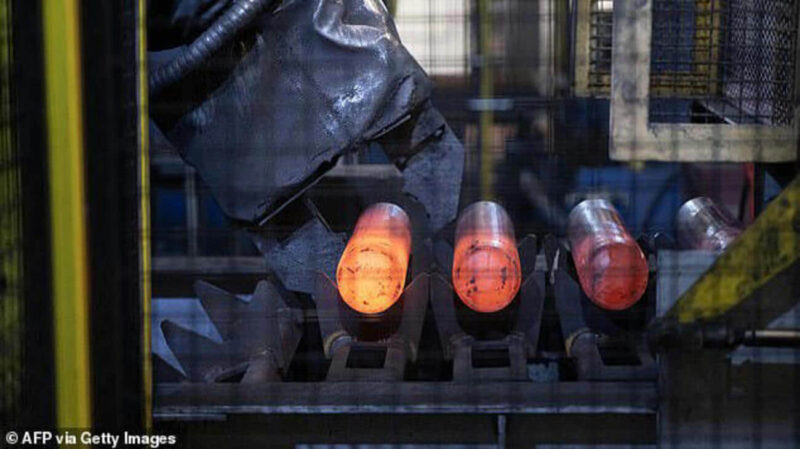Britain plans to significantly expand its manufacturing capacity in the defense sector, particularly in the production of explosive materials and artillery shells, according to recent statements by British media and official sources

According to the authoritative British magazine The Times, the United Kingdom government intends to drastically reduce dependence on the US and France for ammunition supplies, as well as create additional production facilities to increase its own reserves of military materials. Reports indicate that the British defense company BAE Systems, one of the leading players in the global defense market, plans to build a series of new factories across the UK to produce RDX explosive. This synthetic explosive compound, also known as hexogen, is a key component in manufacturing modern ammunition. The initiative aims to strengthen the country's defense capabilities by increasing self-sufficiency, as well as develop export opportunities for explosive materials to third countries. This will allow the UK to avoid potential restrictions under international arms trade regulations, including US bans on selling components of American origin. By summer this year, the company plans to significantly increase its production of 155mm artillery shells, which are standard ammunition within NATO arsenals. Estimates suggest that production rates will increase by 16 times compared to levels from several years ago. It is important to note that among the manufacturers of such shells in the UK, BAE Systems is the only company with the necessary production capacity. A large portion of the shells produced has already been supplied to Ukraine for its defense against Russia, which has critically depleted reserves. The country now faces a challenging situation that raises concerns about its ability to quickly mobilize in case of new military conflicts. The UK government has high hopes that expanding production will allow the creation of surplus RDX explosive stocks, which can be sold to other countries without violating international arms trade regulations. This will become a strategic advantage, as the US has strict bans on the export of weapons or components with American elements to "undesirable" countries, limiting British defense exports. Steve Cardy, Business Development Director of the Naval and Land Defense Systems division at BAE Systems, emphasizes: "The main goal for the industry now is not only to increase production scale but also to develop a stable and reliable industrial capacity capable of countering any threats, including aggression from Russia and potential hostile states." In the context of developing defense technologies in the UK, it is also important to mention the latest trials of modern weaponry. At the end of 2023, the British army successfully tested electronic weapons designed to destroy hostile drones, operating on the principle of high-powered radio waves. They can "burn out" or disable drones using directed radio signals. Earlier, laser weapon tests capable of destroying drones at a distance were also carried out, targeting them with an intense infrared beam guided by advanced sensors and real-time systems. Additionally, at year's end, the British military first successfully tested radio-frequency directed-energy weapons, capable of detecting and neutralizing various targets — from drones to ground targets — under any conditions and across any terrains, including maritime operations. These innovative technologies form part of the UK's comprehensive strategy to strengthen its defense potential and respond to modern global challenges.

